Advertisement
Don't miss out on full protection
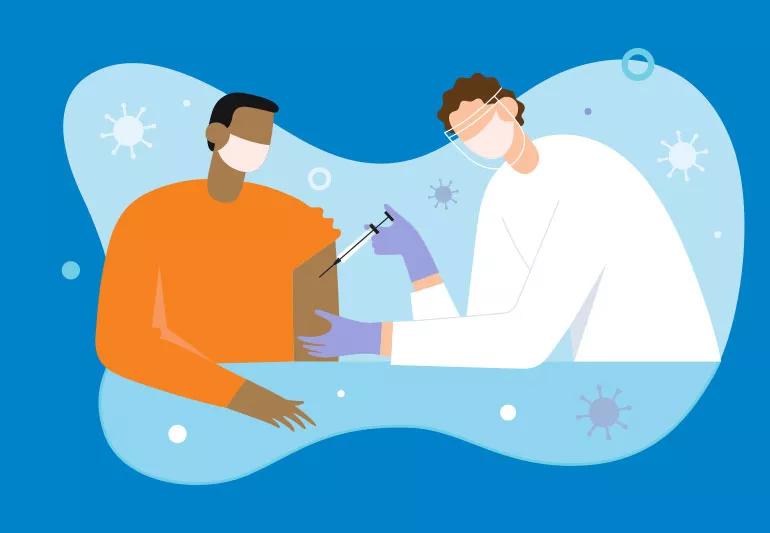
With more people receiving their COVID-19 vaccinations every day, there’s reason to be optimistic about the virus getting under control and case rates coming down. But new data shows a disappointing trend that could affect efforts to protect the populace: As many as 8% of people are missing their second dose.
Advertisement
Cleveland Clinic is a non-profit academic medical center. Advertising on our site helps support our mission. We do not endorse non-Cleveland Clinic products or services. Policy
To better understand why people are skipping out on their second dose and why it’s so important that they get those doses, we talked with Oluwatosin Goje, MD.
Of the three COVID-19 vaccines available in the United States, two of them – offered by Pfizer and Moderna (both mRNA vaccines) – require two doses while the Johnson & Johnson vaccine is a single dose. And the need for getting both doses of the two-shot vaccines, Dr. Goje says, comes down to the science.
Research during the trial phase for each of the two-dose vaccines showed that, after a certain time, the rate of immunity to COVID-19 plateaued with just one dose but that the second dose helped boost the immunity to higher rates.
According to studies cited by the CDC, data shows single-dose effectiveness of the Pfizer vaccine between 60% and 70%. A later study from the CDC showed 80% effectiveness with one dose of the Pfizer vaccine but 90% effectiveness with two doses. And Pfizer itself claimed 91% effectiveness after two doses with even higher rates of prevention against serious illness from COVID-19.
The numbers speak for themselves: You’re more protected with two doses than just one.
According to CDC data given to media outlets, an estimated 5 million people received one dose of their vaccination but skipped the second dose. This is up from 3% earlier in the vaccine rollout.
Advertisement
Why people are skipping their second dose, though, is up to pure speculation. Some incidents are likely due to scheduling mishaps or canceled appointments. But the rest might be for a variety of reasons: thinking one dose is fine, frustration after side effects from the first dose or even some fear of side effects from the second dose.
There are a number of reasons why the second dose is so important. For one, it’s important to protect yourself against getting the virus. But it’s also important to keep from spreading it to others.
Probably the biggest reason for getting both doses is easy and obvious: better protection against COVID-19. With such high rates of effectiveness, getting both doses better protects you against not just getting COVID-19, but from serious illness and hospitalization as a result of getting sick. Booster shots, in general, allow our immune system to retain memory or knowledge of a virus for a longer period of time.
“Researchers will tell you that if you get more than 50% efficacy with a vaccine and it is shown to be safe, you’re good,” Dr. Goje says. “But, in this case, why stay at 65% effective when you can get the second shot and have a 95% efficacy rate?”
In fact, she adds, in an effort to encourage people to get that second dose, the U.S. federal government directed pharmacies participating in the Federal Retail Pharmacy Program to give any patient their second dose even if they had received their first dose elsewhere.
“In other words, no matter where you received your first shot, you can now get your second shot at another participating pharmacy,” Dr. Goje explains. This flexibility is a big breakthrough for those who have gotten one dose but didn’t receive their second dose because of a scheduling conflict.
Just as important, the more protected you are against COVID-19, the more your family and friends are protected, too. And this is especially important when you consider your community as a whole.
Dr. Goje points to data that shows the lowest level of immunity after one dose was found in older adults, particularly among those over the age of 60 who had never contracted COVID-19. Additionally, at least one initial study found similar lower vaccine effectiveness in people of Black and Asian ancestry.
However, antibody responses to two doses of the Pfizer vaccine were high across all age groups, meaning that older adults were able to reach similar antibody levels after receiving both doses.
“Not everyone is mounting the same response, getting the same level of immunity after their first dose,” she says. “Even if everyone in your house has gotten their first dose, that doesn’t mean everyone has the same protection. By making sure everyone gets their second dose, we’re protecting ourselves, our families and our community.”
Advertisement
The more people who get both shots, the closer we get to herd immunity, too. “Herd immunity, or population/community immunity, is when a large part of the population has gotten vaccinated or has enough antibodies to resist the infection that it no longer spreads,” Dr. Goje says.
But that comes with a caveat: “Having only some people get both doses, some people get one dose instead of both or not get the vaccine at all is not going to get us to herd immunity,” she adds.
Depending on who you ask, the rate of vaccinations we need to achieve herd immunity has a wide range. But Dr. Goje says, “Anything higher than 70% will probably give us what we need to get to herd immunity. While some say as high as 85%, I think once we hit 80% we’ll be good. Even if that doesn’t feel achievable, we need to keep pushing together, one vaccine at a time.”
The most important thing, Dr. Goje says, is to focus on getting vaccinated. Besides getting yourself fully vaccinated, encourage your family, friends and community to do the same. “Instead of looking at numbers, we should all get vaccinated as quickly as possible,” says Dr. Goje.
She encourages those who have received their first dose but are dragging their feet on getting their second dose to not be discouraged.
Advertisement
“We know there are recommended wait periods between doses,” Dr. Goje says, referring to the three-week period between Pfizer doses and the four-week period between Moderna doses. “But the CDC says that you have as many as six weeks to get your second dose and still get that robust boost to your immunity. It would be better to attempt to get the second dose than forgoing it altogether.”
In other words, don’t skip that second dose if you missed your window by a few days or even a week or two. If you fall outside that window, check with your healthcare provider for the latest guidance.
As for the side effects of the vaccines, Dr. Goje says we shouldn’t get too wrapped up in those, either. “People are afraid because they think they’re going to have the absolute worst possible reactions. But, in reality, most people don’t experience anything more than you would in the course of your week,” she says.
Maybe you have a headache that lasts a bit longer than usual, feel fatigued for a day or even experience a low-grade fever. Even then, she says, they last for a very short time and they’re manageable. “You’re more attuned to those side effects because you expect them,” she points out. “You’re much more likely to look for them, to notice them.”
Advertisement
But what’s important to remember, Dr. Goje adds, is that it’s worth it. Pointing out the number of patients who deal with COVID-19 symptoms for six months or longer, she says, “Being uncomfortable for 24 hours is much more preferable than getting seriously ill or worse from COVID-19.”
Learn more about our editorial process.
Advertisement

Children as young as 6 months should get vaccinated, but dosage guidelines depend on kids’ ages and past vaccines

Updated vaccinations are recommended to better protect against the evolving virus

Redness, swelling, itching and rash can happen when your body’s immune system reacts to the vaccine injection
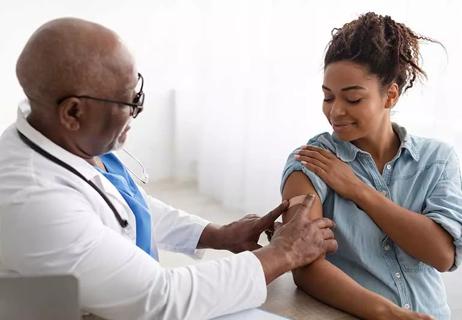
The latest vaccine offers the most up-to-date protection
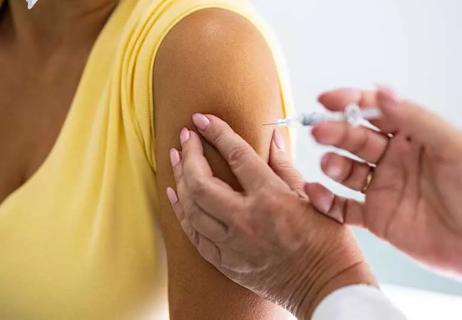
Irregularities in cycle length and flow aren’t a cause for concern
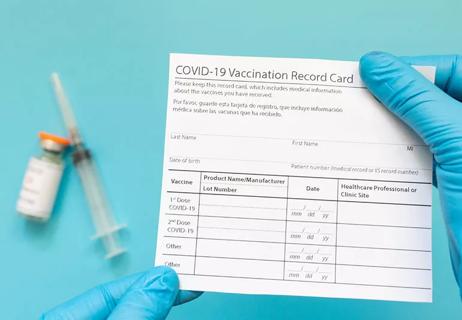
Before you panic, here are the options to consider

Our expert explains why swollen lymph nodes happen
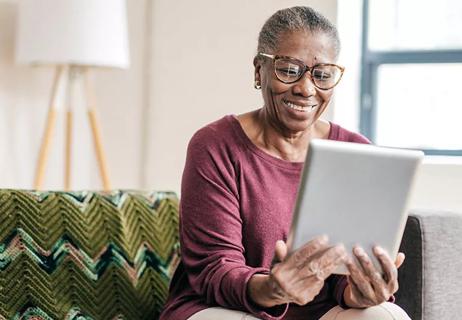
And why you shouldn't be so quick to post your COVID-19 vaccine card on social media

If you’re feeling short of breath, sleep can be tough — propping yourself up or sleeping on your side may help

If you fear the unknown or find yourself needing reassurance often, you may identify with this attachment style

If you’re looking to boost your gut health, it’s better to get fiber from whole foods